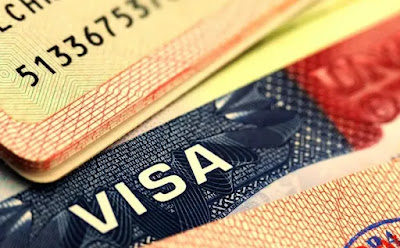Presentation:
As per Visa official, I comprehend the expectation and uneasiness that candidates face during the visa screening. Many can't help thinking about what data officials approach and what elements impact their independent direction. In this article, we'll dig into what Visa officials know during meetings and feature the three key angles they focus on while surveying visa applications.
1. Restricted Information Until the Meeting:
Visa officials regularly have restricted information about a candidate's case until the genuine meeting. It's just at the times paving the way to the meeting, ordinarily in something like 30 seconds, that officials recover and survey the candidate's DS-160 visa application. They center around vital subtleties like the span and motivation behind the visit, existing familial ties in the U.S., past visa disavowals, business status, and monetary strength.
2. Top 3 Elements Considered by Visa Officials:
a. Past Visa Dissents: One of the principal perspectives Visa officials examine is whether the candidate has been denied a visa previously. Provided that this is true, officials survey, assuming the candidate's conditions have changed since the last refusal. Numerous refusals leave notes in the framework, affecting the official's choice. Thus, candidates should be entirely ready to address any worries or inconsistencies from past applications to upgrade their possibilities of endorsement.
b. Clearances and Historical verifications: Visa applications go through broad personal investigations, including criminal history screenings. Any warnings might provoke officials to dig further during the meeting, looking for explanation from the candidate. Candidates genuinely must be straightforward and impending with respect to any issues that might emerge during these checks.
c. Settler Goal: Visa officials likewise survey whether a worker visa request has been recorded for the candidate's benefit. This shows the candidate's plan to live for all time in the U.S., which goes against the motivation behind a non-outsider visa. Candidates applying for brief visas (e.g., B1/B2 or F1 visas) should show non-settler plan convincingly. Notwithstanding, forthcoming foreigner visa petitions can muddle matters and require cautious clarification during the meeting.
End:
Exploring the visa screening can be overwhelming, however, understanding what Visa officials focus on can fundamentally work on your odds of coming out on top. Being totally ready, tending to any past dissents or errors, and keeping up with straightforwardness are urgent moves toward getting endorsement. Keep in mind, every collaboration with a Visa official is brief however significant, moulding your visa history endlessly. By making proactive strides and looking for direction when required, candidates can explore the screening with certainty and increment their possibilities of a good result.
On the off chance that you found this article supportive or have any inquiries, go ahead and leave a remark beneath. Your criticism is important and assists us with tending to significant themes in future substance. Many thanks to you for focusing intensely on perusing this article.





%20(1).webp)
0Comments